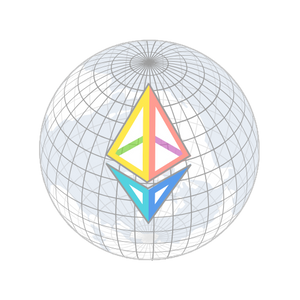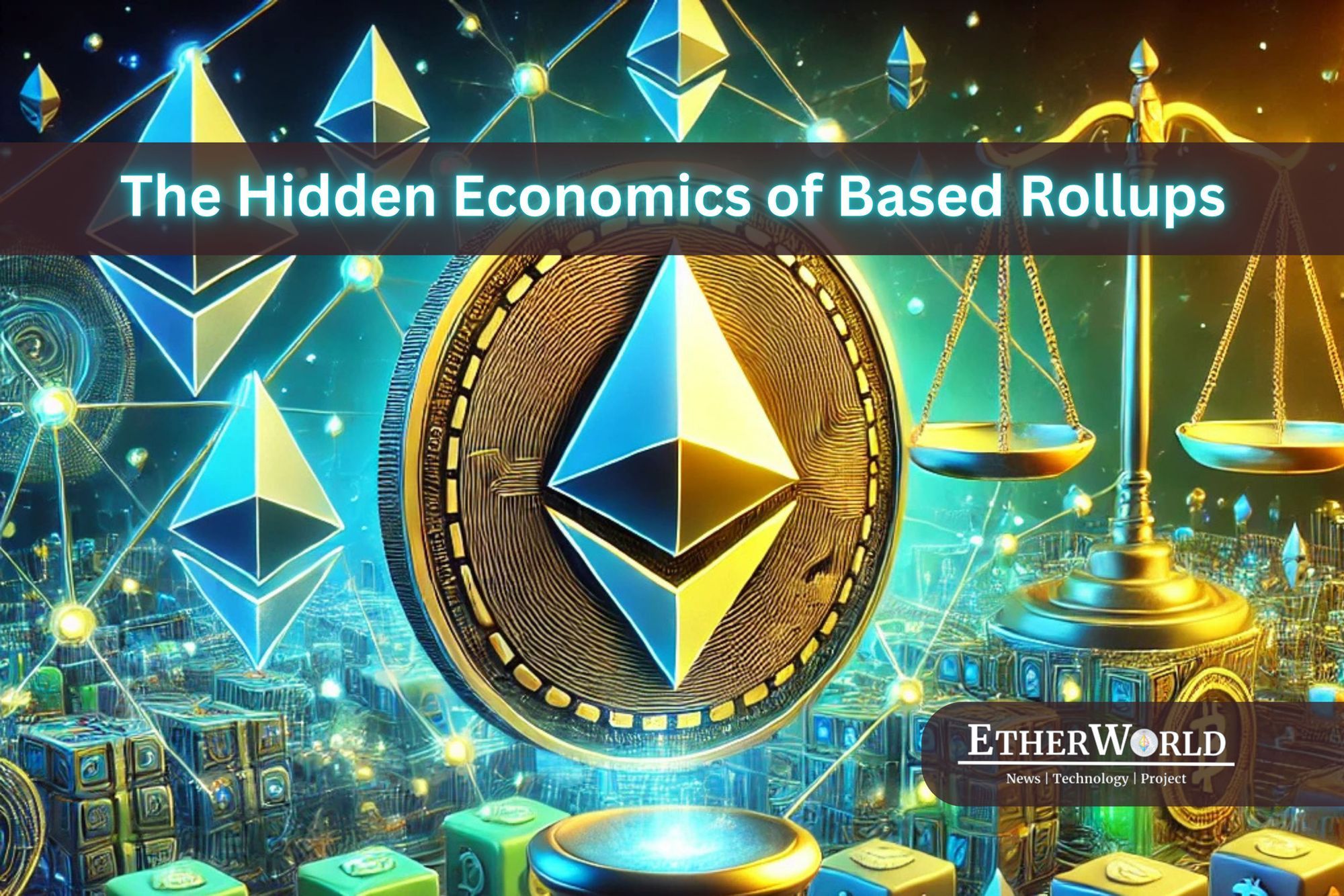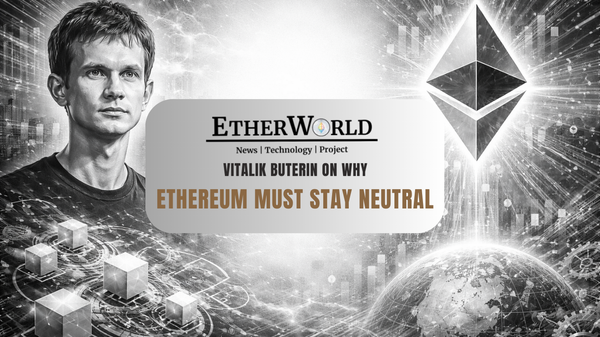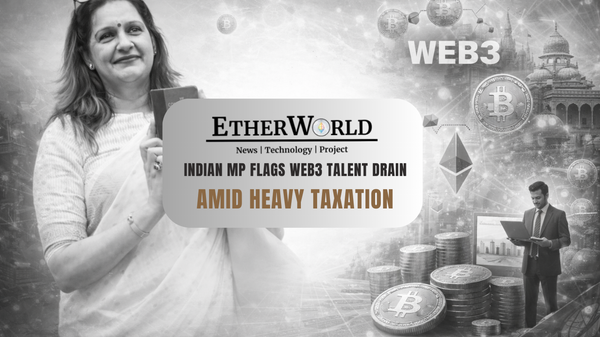Quick Links
- What Are Based Rollups
- What Is “Total Anarchy” in Block Sequencing?
- Why Does This Hurt Taiko?
- What’s the Cost?
- Who’s Winning in This System?
- Why Is This a Problem?
- What Can Be Done?
- Why Should You Care?
Ever wondered how Ethereum’s Layer 2 (L2) solutions are helping scale the blockchain while keeping it secure and decentralized? Let’s understand one of the most interesting and challenging aspects of it—Taiko, a based rollup, and how its unique approach impacts its economics.
What Are Based Rollups Anyway?
Based rollups are a way to scale Ethereum by moving transactions off the main blockchain (Layer 1, or L1) while still using it for security and data availability. They avoid using centralized sequencers to maintain decentralization. But with great decentralization comes great challenges!
Taiko, the only live based rollup right now, uses a system called “total anarchy” for deciding who gets to add blocks of transactions. And while this sounds exciting, it’s creating some economic headaches.
What Is “Total Anarchy” in Block Sequencing?
Imagine you’re at a concert where anyone can jump on stage to sing at any time. That’s what “total anarchy” looks like in the blockchain world. Any user can propose a block of transactions to be added to Ethereum’s L1.
Sounds fair, right? But here’s the catch:
- Everyone rushes to propose blocks at the same time.
- This leads to redundant blocks(blocks with the same transactions.)
- Only the first valid block gets processed, making other blocks a waste of space and money.
Why Does This Hurt Taiko?
Taiko Labs, the main team behind this rollup, often finds itself at a disadvantage. Here’s why:
- Competing Proposers: Others watch Taiko’s blocks and outbid them in something called a Priority Gas Auction (PGA). In this auction-like scenario, proposers pay higher fees to ensure their block gets processed first.
- Redundant Blocks: When Taiko’s block isn’t the first, many of its transactions become invalid, but Taiko still pays the full cost of proposing and proving the block.
What’s the Cost?
The numbers are staggering! In just two weeks, Taiko Labs lost around 83.9 ETH, which is about $261,000 (at an Ethereum price of $3,112).
Here’s what this means:
- Taiko spends money to keep the system running, even when it doesn’t earn much from transactions.
- Competitors (like other proposers) are making profits while Taiko bears the losses.
Who’s Winning in This System?
During the analysis, it was found that:
- Proposer A made 26 ETH ($80,912) in profit by outbidding Taiko.
- Proposer B earned 17.5 ETH ($54,460).
- Meanwhile, Taiko Labs faced consistent losses.
These competitors use sophisticated strategies to bid higher and secure the most profitable transactions.
Why Is This a Problem?
This isn’t just bad for Taiko; it’s bad for the network:
- Redundant Data: Posting multiple blocks with overlapping transactions clogs up Ethereum’s L1, making it more expensive for everyone.
- Economic Sustainability: If Taiko Labs keeps losing money, it risks the long-term sustainability of this rollup.
What Can Be Done?
The current system needs better incentives and smarter ways to manage proposers. Some potential solutions include:
- Better Coordination: A system to avoid redundant blocks.
- Fairer Incentives: Adjusting rewards to ensure proposers like Taiko Labs aren’t consistently outbid.
Why Should You Care?
Rollups like Taiko are paving the way for a more decentralized and scalable Ethereum. Understanding their challenges helps us appreciate the complexity of blockchain economics and the innovation needed to overcome them.
As Ethereum evolves, the lessons learned from Taiko’s struggles with total anarchy might shape the future of rollups—and blockchain itself!
What do you think? Could these challenges spark the next wave of innovation for Ethereum?
Based on the original research by Davide Rezzoli, https://ethresear.ch/t/understanding-based-rollups-pga-challenges-total-anarchy-and-potential-solutions/21320 (Ethereum Research, Dec 2024).
Related Articles
-
Ethereum Layer 2 projects: An Overview
- An overview of different Ethereum L2 projects - Rollups, Zero-knowledge rollups, Optimistic rollups, Plasma, State channels, Side chains and more.
-
Vitalik Buterin Unveils Analysis on Ethereum's Diverse Layer 2 Landscape
- Explores Security, Scale, and Connectedness Dimensions Shaping Ethereum's Evolving Ecosystem
-
Loopring: Ethereum’s First zkRollup
- Loopring is Ethereum's first ZK-Rollup layer 2. Loopring has been around since August 2017 and was created by Daniel Wang.
Disclaimer: The information contained in this website is for general informational purposes only. The content provided on this website, including articles, blog posts, opinions, and analysis related to blockchain technology and cryptocurrencies, is not intended as financial or investment advice. The website and its content should not be relied upon for making financial decisions. Read full disclaimer and privacy Policy.
For Press Releases, project updates and guest posts publishing with us, email to contact@etherworld.co.
Subscribe to EtherWorld YouTube channel for ELI5 content.
Share if you like the content. Donate at avarch.eth
You've something to share with the blockchain community, join us on Discord!








